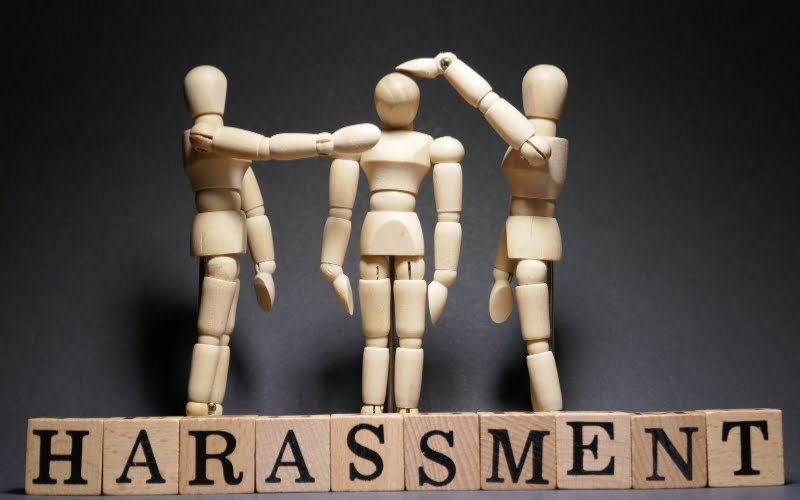Last Updated on March 18, 2024 by Kelvin Nielsen
Under California law, tenants enjoy a smorgasbord of rights. Among others, you have a right to enjoy your rented premises in peace and quiet, which doesn’t allow landlords to enter your rented premises without permission. As such, your landlord cannot move your personal belongings without permission.
That said, some exceptions do exist, where a landlord can move your personal belongings even without your express permission.
In this blog, we’ll examine two scenarios: when a landlord can and can’t move a tenant’s personal belongings without permission in California.
When can a landlord move your personal belongings without permission in California?
1. In case there is an emergency at the property.
If there is an emergency that poses a risk or damage to the property, a landlord may be able to enter the property without your permission to move the belongings to safety.
Examples of such emergencies include a fire outbreak, a flood, or a gas leak.
2. If the landlord has reasons to believe you have abandoned the property.
Under California law, a landlord would consider a property abandoned if rent is 14 days overdue and have good reason to believe the tenant has left without proper notice.
In such a case, the landlord would need to send the tenant a Notice of Belief of Abandonment. This will give the tenant between 15 and 18 days, depending on the method of service, to contest the abandonment.
If the tenant doesn’t answer the abandonment, the landlord will be in the clear to move the tenant’s personal belongings without their permission.
To sum, a California landlord must do three things before moving a tenant’s personal belongings without permission in California when it comes to abandonment.
- The rent must be overdue by at least 14 days.
- The landlord must send the tenant a Notice of Belief of Abandonment. This must include the tenant’s name and the unit’s address. It must also say that the landlord will be ending the rental agreement after the notice period. The notice period can either be 15 days (if the landlord serves the notice in person) or 18 days (if the landlord serves the notice by mail).
- The landlord must have a good reason to believe that the tenant has abandoned the property. Such reasons include non-payment of rent, the property keys being left behind, and the absence of the tenant’s personal possessions.
3. After a formal eviction process.
After an eviction, the landlord may have a right to enter your property and move your personal belongings.
In California, a Writ of Execution is the tenant’s final notice to leave the premises. It gives the tenant one final chance to remove their personal belongings from the unit before the sheriff can forcibly kick them out.
After the eviction, however, the landlord may realize that the tenant has left some of their belongings behind. In such a case, the landlord must try to notify the tenant of their abandoned property by giving them a notice of at least 15 days (if the service is through personal delivery) and 18 days (if the service is via mail).
If you fail to claim the property within the notice period, the landlord can choose to dispose of it. (Cal. Civ. Code §§ 1980–1991 (2023).)
When is it illegal for a landlord to move your personal belongings without permission in California?
Aside from the reasons aforementioned, it’d be illegal for a landlord to try to move your personal belongings without your permission. California landlords have a responsibility to provide their tenants with a 24 hours’ notice before entry.
The landlord must also give you a legitimate reason for the entry. Common reasons include the following.
- To inspect the property.
- To show the property to prospective tenants, buyers, or lenders.
- To respond to a maintenance request.
- Under a court order.
Also, the entry times must be between 8A.M and 5P.M from Monday to Friday, unless otherwise agreed. Cal. Civ. Code § 1954(d).
With that in mind, the following are instances where it’d be illegal for your landlord to move your personal belongings without permission in California.
- When the landlord doesn’t have your permission to enter your rented premises.
- When the landlord is carrying out a “self-help” eviction tactic. An example of a self-help eviction tactic is when a landlord removes their tenant’s personal belongings from the unit to force them to leave. This is illegal in California, as it is elsewhere in the country.
For the landlord to evict you from your rented premises, they must go through the state’s eviction process to obtain a court order. For eviction due to non-payment of rent, for instance, the landlord must go through this step-by-step eviction process to evict you.
Frequently Asked Questions (FAQs): Can a Landlord Move Your Personal Belongings Without Permission in California?
Q: Can a landlord enter your home without permission in California?
A: No, a landlord must first obtain the tenant’s permission before entering their rented property. In California, the notice must be at least 24 hours in advance.
Q: Can a landlord spy on a tenant in California?
A: As a tenant in California, you have a right to privacy. Also, apartment security camera laws prohibit any recording of locations where tenants have a reasonable expectation of privacy. Examples of such locations include private changing areas, locker rooms, restrooms, and inside the apartment.
To sum up, a landlord cannot use security cameras to monitor your private life. Here is a guide on other things a landlord cannot do in California.
Q: What are my renters’ rights in California?
A: As a renter in California, you enjoy a myriad of rights under the statewide landlord-tenant act. Here is a guide to get you started.
Q: What is considered landlord harassment in California?
A: Landlord harassment can take many forms. Including, entering your rental unit without permission, refusal by the landlord to make repairs, limiting or taking away services promised in the lease, and verbal or physical threats.
Conclusion
So, can a landlord move your personal belongings without permission in California? It depends! A landlord can do so in certain situations. That is after a formal eviction process, in case of an emergency, or where the landlord has good reasons to believe you have abandoned the property. However, for all other reasons, the landlord must first obtain your permission before moving any of your stuff.
Disclosure: The content herein isn’t a substitute for advice from a professional attorney. It’s only meant to serve educational purposes. If you have a specific question, kindly seek expert attorney services.
Sources: https://oag.ca.gov/privacy/ccpa, California harassment prevention guide, https://selfhelp.courts.ca.gov/, CA Civil Code 1940-1954.06,

Hi, I’m Kelvin Nielsen, an experienced landlord and accomplished real estate lawyer. My focus is on answering your questions about renting in the hopes of making your life as a renter or a landlord a bit easier.



![Do You Get Your Security Deposit Back When You Move Out? [All 50 US States] do you get your security deposit back when you move out?](https://landlordtenantresource.com/wp-content/uploads/2025/02/Untitled-800-×-500-pox-200x100.jpg)



